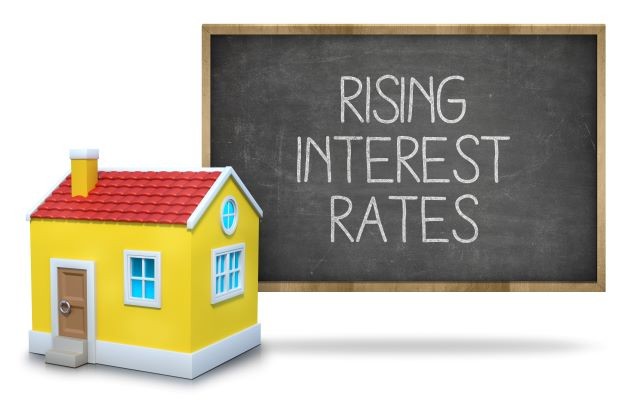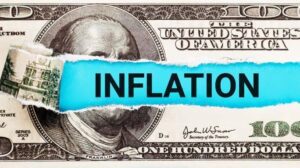Mortgage rates in Phoenix, Arizona have spiked up to almost 7%, the highest level over a decade, causing concern among homeowners and potential buyers alike. Inflation is a crucial factor impacting mortgage rates and the real estate market in Phoenix, AZ, and it’s essential to understand the implications of these trends. This article will explore why mortgage interest rates have spiked, how inflation affects the real estate market in Arizona, and why it’s important to buy now versus wait later.
Mortgage rates in Phoenix, Arizona have spiked due to a variety of factors, including:
- Inflation: Inflation is the primary driver of higher mortgage rates. The Federal Reserve may raise interest rates to combat inflation as inflation increases. When interest rates rise, so do mortgage rates.
- Economic Growth: Economic growth can also impact mortgage interest rates in Phoenix, AZ. As the economy grows, demand for credit increases, leading to higher interest rates.
- Government Policy: Government policies can also impact mortgage interest rates in Phoenix, Arizona. For example, the Federal Reserve’s decision to end its bond-buying program in 2014 led to higher mortgage rates.
 How Inflation Affects the Real Estate Market?
How Inflation Affects the Real Estate Market?
Inflation significantly impacts the real estate market, particularly in areas with high demand and limited supply. The following are some of the ways inflation is impacting the real estate market:
- Higher Home Prices: As inflation increases, so do home prices. The increase in home prices is due to the higher cost of building materials, labor, and other inputs, driving up the cost of new homes. In addition, existing homeowners may be more reluctant to sell their homes, as the cost of buying a new home is also higher.
- Higher Mortgage Rates: Higher inflation leads to higher mortgage rates, making it more expensive to buy a home. Higher rates can dampen demand and slow down the housing market.
- Tighter Credit Standards: Inflation can also lead to tighter credit standards, as lenders become more cautious about lending in a higher interest rate environment. Stricter underwriting criteria make it more difficult for some buyers to qualify for a mortgage.
 Buy Now versus Later?
Buy Now versus Later?
Given the current trends in the real estate market, buying now may be advantageous rather than waiting. Here are a few reasons why:
- Mortgage Rates are Likely to Continue Rising: Mortgage rates have already spiked and will continue rising as inflation remains high. The cost of borrowing will be higher in the future, making it more expensive to buy a home.
- Home Prices are Also Likely to Continue Rising: As we’ve discussed, inflation drives home prices, which will likely continue. Waiting to buy a home may mean paying more in the future as home prices continue to rise.
- Limited Supply: In many markets, there is a limited supply of homes for sale, making it challenging to find the right home at the right price. It may mean you need more inventory to buy a home.
 In Conclusion …
In Conclusion …
The Greater Phoenix market is experiencing many of the same trends we’ve discussed above. Here are a few key points to consider:
- Home Prices are Rising: According to Zillow Phoenix the median home value in Phoenix is currently $398,899, an increase of 4.6% over the past year. In Scottsdale, the median home value is $750,908, up 6.3% over the past year. Zillow Scottsdale
2. Limited Inventory: There is a limited inventory of affordable homes for sale in all three markets.
3. High Demand: Despite rising home prices and limited inventory, demand remains high in these markets.
Given the current trends in these markets, buying now may be advantageous rather than waiting later. However, with a limited inventory of affordable homes and high demand, waiting to purchase a home may mean missing out on the limited stock that is currently available. In addition, as mortgage rates continue to rise, the cost of borrowing will be higher, making it more expensive to buy a home.
In conclusion, various factors have spiked mortgage rates, including inflation, economic growth, and government policy. Inflation is significantly impacting the real estate market, leading to higher home prices, higher mortgage rates, and tighter credit standards. Given these trends, buying now may be advantageous rather than waiting later, especially in markets with limited inventory and high demand, such as Phoenix, Arizona, Scottsdale, and Maricopa County. By acting now, potential buyers can take advantage of the limited inventory and lower mortgage rates, securing a home at a lower price and avoiding higher borrowing costs in the future.



 How Inflation Affects the Real Estate Market?
How Inflation Affects the Real Estate Market? Buy Now versus Later?
Buy Now versus Later? In Conclusion …
In Conclusion …


